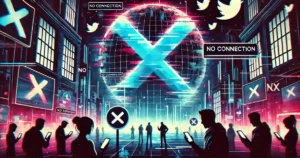The gaming industry is undergoing a paradigm shift with the advent of generative AI tools, which are reshaping how games are conceptualized, designed, and produced. These AI technologies are lauded for their ability to streamline creative processes, reduce development time, and unlock new avenues for innovation. However, their integration raises significant ethical and practical questions that the industry must address.
The Rise of Generative AI in Game Development
Generative AI leverages machine learning models to produce assets such as textures, animations, and even narrative elements, reducing the workload on development teams. For instance:
- Procedural World Generation: AI algorithms now design complex and immersive game worlds at a fraction of the traditional cost and time.
- Character Animation: Advanced models generate realistic movements and facial expressions, reducing reliance on manual keyframing or motion capture.
- Dynamic Storytelling: AI-driven systems adapt narratives in real-time, offering players a unique and personalized gaming experience.
These capabilities have already begun to redefine production pipelines, with tools like ChatGPT and MidJourney being explored for concept art, storyboarding, and dialogue generation.
Benefits of Generative AI
- Efficiency Gains: AI reduces repetitive tasks, allowing developers to focus on high-value creative aspects.
- Lower Costs: Automation in asset creation and testing can make game development more accessible for indie developers.
- Creative Expansion: Generative AI unlocks novel possibilities, enabling the exploration of artistic styles and gameplay mechanics that were previously unattainable.
Ethical Concerns
- Job Displacement: One of the most pressing concerns is the potential reduction in demand for artists, animators, and writers. As AI takes over more roles, the industry risks sidelining human creativity.
- Originality vs. Automation: Critics argue that reliance on AI-generated assets may dilute originality, leading to homogenized designs and narratives.
- Ownership Issues: The use of AI models trained on uncredited datasets raises questions about intellectual property rights, with many artists claiming their works were used without consent.
The Balance Between Innovation and Responsibility
The integration of generative AI into gaming is not inherently problematic but requires thoughtful implementation:
- Transparency in AI Usage: Developers should disclose when AI is used in content creation, ensuring players understand the process behind their favorite games.
- Ethical Frameworks: Establishing industry-wide guidelines can ensure that AI tools augment rather than replace human creativity.
- Reskilling Initiatives: Companies must invest in training programs to help artists and developers adapt to AI-driven workflows.
Future Outlook
Generative AI holds immense potential to revolutionize the gaming industry, but its adoption must be tempered with ethical considerations. Striking a balance between automation and artistry will determine whether AI becomes a tool for empowerment or a source of contention in the gaming world.
As this technology evolves, the industry faces a pivotal moment to redefine its creative ethos while navigating the challenges of a rapidly transforming landscape.






